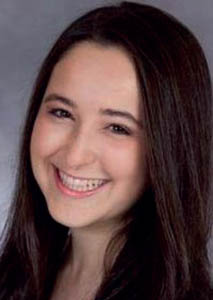
Many Americans, I’m told, have two chances per year to start fresh—once with the calendar, on January 1, and once with school, when that begins in the fall. Like for many others, both times have given me the opportunity to examine how my life has been going and decide on any changes I wish to make going forward.
But the truth of the matter is I’ve had a third chance as well: Rosh Hashanah. It comes each year, and is by far the most significant time of renewal out of all three. As a kid, this was just another holiday for which I had off from school and spent more time than usual in shul. My Morot always taught us about the importance of the Jewish New Year, going more in depth as we got older.
Although I would love to say that those lessons are what changed my perspective and gave me an enlightened outlook on my connection to the holiday, that was not where I truly began to appreciate it. My appreciation didn’t even begin when I spent a gap year in Israel; perhaps it was still too early for me to feel truly comfortable in my Israeli environment, and I had yet to develop the skin of a true sabra.
Until I reached a secular university campus, there were still only two New Years that really resonated. The secularity in which I find myself now is the very thing that helped me understand, in my mind, my Jewish self, the one that relates to the Jewish new year.
I remember freshman orientation at University of Maryland last fall, when I realized, for the first time, the dining hall had no silverware I could use, and there was no plastic to be found (it had been deemed not environmentally friendly enough). That moment struck me, forcing me to finally acknowledge that gone were the days of living in an almost entirely Jewish environment, and that I would have to make alternate plans; I would have to actively work to keep kosher.
I realized then that for the next four years, I would be surrounded by non-Jews, sharing classes and dorm buildings, but standing on the sidelines as they wore different clothes, ate different foods and celebrated different holidays.
Just like every other year, and like every other freshman, I was handed a clean slate on a silver platter when school began. Most people did not know me yet. They soon did, as I jumped at the opportunity and relished making myself a part of my campus community, making new friends and connections with those who didn’t know the girl I had been back in junior high and high school.
Come Rosh Hashanah last year, I went home to Teaneck, as did many of the Orthodox Jews on campus, except it felt different. Even as I prayed in shul, a part of me knew what classes I was missing, what events were occurring. I was strangely and utterly aware that the majority of my classmates were not celebrating a new beginning as I was, but were simply continuing on the same path they had already beaten. This should not have come as much of a surprise to me, but the sense of joy that overcame me begged to differ.
Being a Jew on a secular campus is hard. It means missing lectures, getting notes and having to work out new due dates for assignments with professors who, frankly, are not necessarily understanding. It means that you cannot grab just anything to eat when your schedule does not give you time to go to the kosher dining hall that is on the other side of a massive campus. It means dealing with anti-Semitic and anti-Israel sentiments held by many faculty and students alike.
Yet, it also means a more tangible experience of being part of the chosen nation. Instead of going out on a Friday night, you will probably make your way over to the Hillel or Chabad. Maybe instead of jumping out of bed and running to class, you wake up early to go to minyan. When you attend a program or meeting at which non-kosher pizza is served, you quietly sit back and try to explain why, no, you cannot have a slice, because it does not comply with your religious laws of eating. The very thing that sets me apart at school is bringing me closer to the religion itself.
These bits of life that seemed so commonplace back home, in my Jewish bubble, stand out to me here. And as Rosh Hashanah once again draws near, I recognize how blessed I am to be Jewish, and to have that third, true New Year. This is a time when I reconnect to what is important. A time when I discover what I need to do to be the person I envision myself being. A time when my roots gather strength to face the secular world in which I live, without losing sight of my Jewish values.
College may be in session this Rosh Hashanah, but the only class I am attending is one that is generations old and taking place in shuls worldwide.
Sara Linder, a Jewish Link contributor, is a sophomore studying marketing and English at the University of Maryland, College Park. She enjoys spending time in the kitchen, photography and writing, along with running chesed events in the Orthodox group (Kedma) on campus and keeping up with her studies.
By Sara Linder









